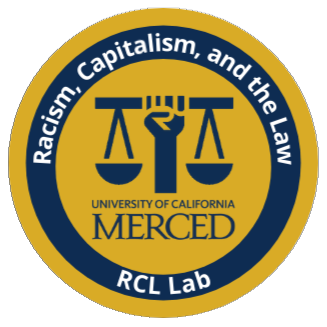BackgroundEpidemiological studies have described an “acculturation paradox.” Increased acculturation to the United States is associated with increased consumption of dietary fat and decreased consumption of fruits/vegetables.ObjectiveTo expand understanding of the dietary acculturation paradox, this study examined how bicultural Mexican-American women construct ethnic identity and how these identities and identity-making processes relate to perceptions of health and nutrition.DesignWe utilized embedded mixed methods (in-depth interviews; survey).Participants/settingWe analyzed a purposive sample of English-speaking Mexican-American women aged 18 to 29 years (n=24) in rural California to assess ethnic identity and diet beliefs.ResultsParticipants described food as central to expressing cultural identity, usually in terms of family interactions. Mexican food traditions were characterized as unhealthy; many preferred American foods, which were seen as healthier. Specifically, Mexican-American women perceived Mexican patterns of food preparation and consumption as unhealthy. In addition, traditional Mexican foods described as unhealthy were once considered special-occasion foods. Among the participants who expressed a desire to eat healthfully, to do so meant to reject Mexican ways of eating.ConclusionsThis study raises questions about the nature of the “dietary acculturation paradox.” While food—the eating of Mexican foods—is central to the maintenance of ethnic identity throughout acculturation, negative perceptions about the healthfulness of Mexican foods introduce tension into Mexican-American women’s self-identification. This study suggests a subtle contradiction that may help to explain the dietary acculturation paradox: While previous research has suggested that as Mexicans acculturate to the United States they adopt unhealthy diets, this study finds evidence that they do so at least in part due to perceptions that American diets are healthier than Mexican diets. Implications for interventions to improve Latinos’ diets include an emphasis on the family and use of Spanish linguistic cues. Finally, messages that simply advocate for “traditional” diets should be reconsidered because that message is discordant with perceptions of the healthfulness of such foods.
Publications
2018
2017
Structural racism — in the form of heavy policing, residential segregation, and limited social services and labor opportunities — combined with changes in immigration laws in 1996 and the rise of immigration policing in the early twenty-first century has shaped the incorporation patterns of Black and Latino male immigrants. This article puts policing and incarceration at the center of the analysis by asking how mass incarceration and structural racism have affected the incorporation trajectories of Black male immigrants. Drawing from 29 interviews with deportees in the Dominican Republic and Jamaica, I argue that gendered structural racism has a greater impact than individual attitudes on the trajectories of black male immigrants. Just as gendered racial removal affects Latino communities through mass deportation, gendered structural racism affects black and Latino immigrant communities through local and immigration law enforcement cooperation.
The study of U.S. racial and ethnic relations is often reduced to the study of racial or ethnic relations. This article reveals the limitations of a focus on ethnicity or race, in isolation, and instead urges a new framework that brings them together. We consider three cases that have been conceptualized by the ethnicity paradigm as assimilation projects and by the race paradigm as structural racism projects, respectively: (1) African-American entrepreneurs; (2) the Mexican middle class; and (3) black immigrant deportees. We reveal the shortcomings of the ethnicity paradigm to consider race as a structural force or to acknowledge that structural racism conditions incorporation in marked ways; and the limitations of the race paradigm to take seriously group members’ agency in fostering social capital that can mediate racial inequality. Instead, we offer a unifying approach to reveals how ethnicity and race condition members’ life chances within the U.S. social structure.
An extensive body of literature has analyzed the individual impacts and collateral consequences of mass incarceration. However, few studies explore the consequences of a parallel and overlapping system: mass immigration detention and deportation. The last 30 years witnessed a dramatic increase in the number of noncitizens detained in and deported from the United States. Individuals detained under immigration laws are held pending adjudication, often mandatorily, and without many basic constitutional protections. Immigrant detention and deportation impose severe burdens on immigrants and their households and levy significant costs to society—financially, as well as in terms of social capital and community well-being. Chiefly due to the difficulty in accessing noncitizens in the process of detention and deportation, this system has largely escaped sociological inquiry. This article provides a background for understanding the growth and consequences of detention and deportation in the United States. It reviews the literature on these immigration law enforcement programs and suggests topical and methodological directions for future research.
2016
This article contests the contention that sociology lacks a sound theoretical approach to the study of race and racism, instead arguing that a comprehensive and critical sociological theory of race and racism exists. This article outlines this theory of race and racism, drawing from the work of key scholars in and around the field. This consideration of the state of race theory in sociology leads to four contentions regarding what a critical and comprehensive theory of race and racism should do: (1) bring race and racism together into the same analytical framework; (2) articulate the connections between racist ideologies and racist structures; (3) lead us towards the elimination of racial oppression; and (4) include an intersectional analysis
This article explores the precarious conditions deported Guatemalans encounter in their country of birth, alongside a consideration of how Guatemalan deportees’ agency is structured by precarity yet mediated by individual factors such as foreign-earned capital and negative credentials. Previous research has found that deportees are often criminalized, stigmatized, and blamed for social problems. Researchers have also found that deportees can be well-suited for work in the transnational call center sector when they have adequate English skills. This raises the question of how deportees’ individual characteristics and the local context of reception influence their (re)incorporation. This study, based on interviews with 34 Guatemalan deportees, reveals that deportees have varied trajectories, yet that the availability of call center jobs combined with deportees’ capacity and agency creates a bifurcation in labor market outcomes between deportees who secure jobs in call centers and those who do not.
In the spring of 2014, President Obama’s administration reached a landmark of over 2 million deportations—more in under six years than the sum total of all deportations prior to 1997. Mass deportation has not affected all communities equally: the vast majority of deportees are Latin American and Caribbean men. Today, nearly 90 percent of deportees are men, and over 97 percent of deportees are Latin American or Caribbean. This article explores the global context under which mass deportation has occurred and draws parallels with mass incarceration. Whereas other scholars have characterized mass deportation as a tool of social or migration control, this article argues that mass deportation is best understood as a racialized and gendered tool of state repression implemented in a time of crisis. I argue that the confluence of four factors has created the conditions of possibility for mass deportation from the United States: (1) nearly all deportees are Latin American and Caribbean men; (2) the rise of a politics of fear in the aftermath of the attacks of September 11th; (3) the global financial crisis; and (4) the utility of deportees.
The implementation of restrictive immigration laws in 1997 in the United States has led to the deportation of hundreds of thousands of legal permanent residents—denizens who had made the United States their home. Mass deportations of denizens have given renewed importance to territorial belonging and legal citizenship for theories of citizenship, a relatively neglected area of scholarship in this field. This article draws from interviews with 30 deported Jamaicans who were once legal permanent residents of the United States to argue that denizens often feel “like citizens” based on their family and community ties to the United States, yet that their allegiance and sense of belonging is primarily to their family and community—not to the state. In this sense, there is a disconnect between the law—which privileges legal citizenship—and the daily lives of denizens—in which they can experience a profound sense of belonging in their communities.


